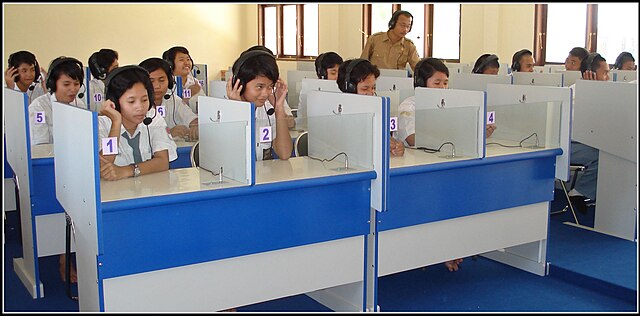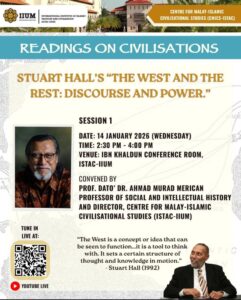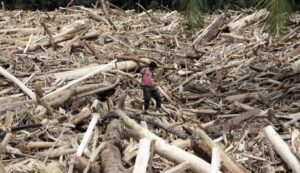Differentiated Instruction in Indonesian Language Subjects at Inclusive High Schools

Author (s) : Nira Intan Sari, Esti Swatika Sari
Institution : Yogyakarta State University,
Indonesia
Category : Article, IJMMU
Topics : Indonesian Language; Teachers; Inclusion; Differentiated Learning
Abstract :
One distinctive characteristic of the Kurikulum Merdeka (Freedom Curriculum) is its prioritization of students’ learning progress over the breadth of material covered. This aligns with the learner-centered approach emphasized in Kurikulum Merdeka. The learner-centered principle provides the foundation for understanding that learning should cater to students’ needs. If students’ learning achievements and paces vary, the teaching process must be designed to address this diversity. This concept is known as differentiated learning (Wahyudin et al., 2024). In the context of evolving modern education, differentiated learning is becoming increasingly relevant and essential. It provides an optimal approach to address the complex challenges facing education today by catering to the learning needs of every student and maximizing their learning potential. Additionally, differentiated learning facilitates students’ development of critical thinking, problem-solving skills, and knowledge generation—
competencies vital for thriving in an increasingly complex society.
The foundational concept of differentiated learning, as proposed by Tomlinson & Strickland (2005), refers to a structured approach in planning instruction for students with diverse intellectual abilities. The approach aims to respect individual learning needs and optimize students’ learning capacities. Differentiated learning involves adjusting content, process, and product based on students’ readiness, interests, and learning profiles. Its core principles include the importance of a high-quality curriculum as a foundation and the need for teachers to actively guide and support students in their learning journey. Teachers must understand that every student has unique needs, interests, abilities, and learning styles. Therefore, they must adapt instructional materials (content), teaching methods (process), and ways students demonstrate their learning outcomes (product) to meet individual needs. In addition to the theories proposed by Tomlinson, Indonesia’s prominent educational figure, Ki Hajar Dewantara, also expressed a perspective on differentiated learning. He likened teachers to skilled
sculptors, stating, “Similar to carvers who deeply understand the nature of wood—its types, aesthetic qualities, and carving techniques—a teacher should have profound knowledge of the art of educating…”Ki
Hajar Dewantara’s philosophy underscores that teachers, like sculptors must comprehend the “material” they shape—students. Teachers need deep understanding of every aspect of education, including students’ characteristics, potential, and unique needs, to create a meaningful and student-centered learning experience. Differentiated learning is also closely associated with inclusive education. Inclusion in education refers to a system that recognizes, accepts, and values diversity among students while ensuring that individuals and minority groups are not marginalized (Anggraena et al., 2021, p. 2). Inclusive education implies that students with special needs are not only enrolled in mainstream education environments but that educational settings and teaching strategies are designed to accommodate and benefit all students. Research on differentiated learning in inclusive schools is crucial as it provides a systematic framework to meet students’ diverse learning needs most effectively. The Kurikulum Merdeka continues to emphasize Bahasa Indonesia as a mandatory subject. The teaching of Bahasa Indonesia in schools is of high importance, as it is Indonesia’s official and national language. Learning it helps students recognize their national identity and fosters pride in the country’s culture and heritage. Recent studies have provided a comprehensive understanding of differentiated learning and inclusive schools. A study by Taş & Minaz (2024) explored the impact of differentiated learning activities based on learning styles on the academic achievement and learning resilience of fourth-grade students in social studies. Using a controlled experimental pretest-posttest design, the study revealed that differentiated activities significantly improved academic performance and resilience. Both teachers and students reported positive experiences, highlighting increased engagement, motivation, and learning outcomes. Recommendations include implementing student-centered approaches,teacher training, and curriculum enrichment with differentiated activities. Van Geel et al. (2019), in a Scopus-indexed journal, identified differentiation as a complex process involving various skills and knowledge. Through classroom observations, semi-structured interviews, and expert meetings, they identified four chronological stages of differentiation: lesson preparation, period planning, lesson execution, and evaluation. They also identified five factors influencing differentiation, verified through triangulation and member checking. Conducted in the Netherlands, their study reflects a cultural complexity distinct from Indonesia. The current research seeks to explore differentiated learning within Indonesia’s cultural context. Similarly, Pozas et al. (2020) revealed important findings on the application of Differentiated Instruction (DI) by teachers in Germany. Their study emphasized the importance of understanding how teachers implement DI to address diverse student needs while highlighting the need for additional teacher training and support in practicing DI. On another note, Shutaleva et al. (2023) underscored the significance of inclusive education and its challenges, such as insufficient skills, infrastructure, and teachers’ attitudes towards students with special needs. The research highlighted the necessity of legal frameworks, inclusive education principles, and the role of universities in promoting social inclusion for
individuals with disabilities. Relevant Indonesian research, such as Sutrisno et al. (2023), indicates the critical role of differentiated learning in maximizing students’ potential. Through Kurikulum Merdeka, students can learn in ways most effective for them, fostering inclusive classrooms where each student feels valued and supported. However, implementing Kurikulum Merdeka faces challenges that need addressing to achieve optimal results. The study emphasized the importance of initial assessments, grouping students based on learning styles, and developing their interests and talents as key steps in differentiated learning. Similarly, Wulandari et al. (2023) highlighted the effectiveness of diagnostic assessments in differentiated learning
for Bahasa Indonesia in SMA Negeri 1 Kuta Utara. Diagnostic assessments, including tests and interviews, helped identify students’ weaknesses and design appropriate learning activities, resulting in
increased student interest in learning. Based on literature reviews and relevant research, this study addresses the knowledge gap regarding the implementation of differentiated learning in inclusive schools in Indonesia. The research aims to explore how teachers apply differentiated strategies to meet the diverse needs of students in
inclusive schools and the challenges and opportunities they encounter. By understanding the application and impact of differentiated learning in Bahasa Indonesia in inclusive schools, this study seeks to contribute to more effective and supportive inclusive education practices in Indonesia. It will also provide practical recommendations for improving teacher training, structural support, and strategies to overcome challenges in implementing differentiated learning in inclusive schools. Thus, the study is titled Differentiated Learning in Bahasa Indonesia in Inclusive Schools.
Article can be downloaded here >> Differentiated Instruction in Indonesian Language Subjects at Inclusive High Schools





